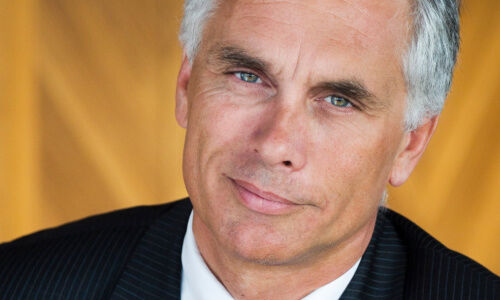Edmond de Rothschild has the wherewithal and financial firepower to acquire as it heads into its next chapter following the death of its major shareholder, CEO Vincent Taupin tells finews.com.
Vincent Taupin, how has the death of your major shareholder, Benjamin de Rothschild, in January affected the bank?
It has been a very sad event for the family, but also for the staff and for the clients. Benjamin was very appreciated by the employees even if he was not active in the bank on a day-to-day basis. The bank has been chaired by Ariane de Rothschild for several years and this will continue. She will now also chair the board of the holding company. There is no change in the strategy of the bank or in our main direction.
How did the pandemic affect Edmond de Rothschild's private banking business?
We were able to cope with an increased volume of transactions despite our employees shifting to remote working in March and April. The private bank had a strong year in terms of both asset raising – 2 billion Swiss francs – and performance of clients’ portfolios.
What about asset management, where you had some outflows?
The private equity, real estate, and infrastructure debt expertise raised 2.2 billion francs, which is a strong performance too. We did have an outflow of roughly 3 billion francs on the liquid side, especially on the European equity market, linked to the March and April market turbulences.
«Completed ten-year strategic shift»
This is relatively consistent with what the industry has experienced during that period. We had no liquidity issues on our funds which is satisfying.
What is the split of assets between private banking and asset management?
About 76 billion Swiss francs in private banking and 92 billion francs in asset management. In the latter, we have illiquid as well as liquid assets and asset servicing.
Edmond de Rothschild merged its French business and delisted two years ago. What other structural measures are to come?
These two measures completed the strategic shift initiated around 2011 when we had three different banks with three different names. This strategy was designed to build one group with one culture and one team, under one banner.
Where do you see staffing – or hiring – this year?
Considering the context, managing costs has to be a priority. Ideally, we would like to keep the level of staff steady, but attracting talent is critical for the growth of the business – in both private banking or asset management. In asset management, it’s also tied to the fact that we are launching new expertise areas and themes every year.
What do you plan this year?
We focus on investment themes addressing key transformations of our society and launched, for example, a new fund around human capital a few months ago, which we will promote this year. We are also working on a private hybrid debt product for the liquid side.
«We don't need another shareholder to foster the bank's development»
On the private equity side, as of today, we are launching new vintages of our current areas of expertise such as our soil remediation strategy. We have also just launched a European private debt product in real estate.
Edmond de Rothschild’s cost-income ratio is well over 80 percent – a lot more than most peers.
It is important to take into consideration our size as well as our setup and platform. I think one of our strengths is having local businesses.
Can Edmond de Rothschild stay independent, and if so at what price?
Edmond de Rothschild is 100 percent family-owned. The fact that Benjamin de Rothschild passed away doesn't change anything.
«This type of allegation is very common in Swiss banking»
We have everything we need to develop the bank under the leadership of Ariane de Rothschild – including 650 million francs in excess capital to make acquisitions. We don't need another shareholder to do so. One of our core assets is being independent.
So acquiring rather than being acquired?
Yes, acquisitions have always been part of our strategy. This is how we have been able to build strong real estate expertise in the last five years [it acquired Cleaveland, Cording, and Orox]. We keep an eye out for opportunities in asset management and private banking with a driver to find more synergies, in terms of both growth and revenue.
Edmond de Rothschild reportedly spoke to Julius Baer recently, for example.
This type of allegation is very common in a Swiss banking sector that has been consolidating for years, and we can't comment.
Vincent Taupin has been the CEO of Edmond de Rothschild since 2019. He previously chaired Edmond de Rothschild France and, from 2016, ran the wider group's asset management arm and sat in top management. Before joining the Swiss Rothschild family bank in 2014, the French banker worked for Société Générale as head of its brokerage arm, Fimat, successively for France, London, and finally, Europe and, from 2010 to 2012, was CEO of Socgen-owned Crédit du Nord. Taupin began his career as a consultant for Peat Marwick Mitchell in 1985 after graduating from France's Ecole Nationale Supérieur des Télécommunications and Ecole Nationale des Travaux Publics.



























